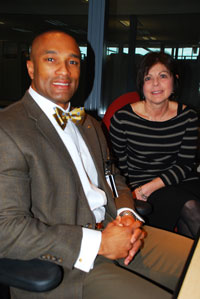 In this episode of Radio Smart Talk, host Craig Layne asks this question about rare cancers to Dr. Brian Pettiford of WellSpan Health and Leslie Vogel, a two-time cancer survivor and patient advocate at PinnacleHealth who says some cancers receive more awareness than others. We welcome your questions and comments on rare cancers in the comments section below.
In this episode of Radio Smart Talk, host Craig Layne asks this question about rare cancers to Dr. Brian Pettiford of WellSpan Health and Leslie Vogel, a two-time cancer survivor and patient advocate at PinnacleHealth who says some cancers receive more awareness than others. We welcome your questions and comments on rare cancers in the comments section below.
But first up in the episode is a conversation with Dr. Ian Gilchrist from the Penn State Hershey Heart and Vascular Institute. As February is American Heart Month, it's important to know what we can do to reduce our risk of heart disease.
Listen to the program:
Pictured left: Dr. Brian Pettiford and Leslie Vogel at the witf studio on Radio Smart Talk.
Program highlights:
 Heart Health:
Heart Health:
Each year, more than one million Americans will have heart attacks. Many of us have heard that heart disease is the leading cause of death in the United States, killing more than 2,000 Americans each day. But, we also know that heart disease is widely preventable by eating right and exercising regularly.
And while it may be difficult to hit the gym as much as we’d like, there are still other small ways we can help reduce our risk for heart disease.
To learn more about heart health, visit the American Heart Association website.
Rare Cancers:
Leslie opens up about what it was like having a very recognized cancer, and then having a cancer that doesn’t receive as much awareness. She thinks that breast cancer gains a lot of attention because that’s what’s getting the most research, the most awareness, and there fore, there’s more room for success. “That’s why money flows there,” she says.
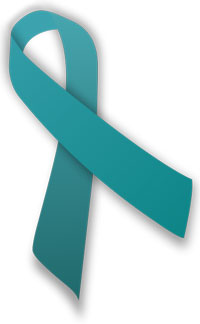
New research about how estrogen works in the body is now showing that there may be a link between breast cancer and ovarian cancer. So, Leslie urges anyone with a family history of the diseases to get some genetic testing. Knowing if you are a carrier of the BRACA gene mutation may save lives.
Lung cancer is a common and well-known cancer, yet doesn't receive the types of funding that other cancer may get. There is a perception in the community that with lung cancer, “You brought it upon yourself.” This perception hinders the types of funding needed to advance research.
Dr. Pettiford says that lung cancer was pretty much nonexistent up until the 1920-30’s when smoking cigarettes became popular. So, it is true that smoking is the number one cause of lung cancer in that 80-85% of lung cancer cases are related to smoking and tobacco use. Despite the Surgeon General warning label on cigarettes, many ignore the warning.
However, 3,000 die every year who have never smoked a day in their life. He says that 2nd hand smoke can be even more harmful than 1st hand smoke. But, there are other lung cancer risk factors as well to be aware of.
Radon has been linked to lung cancer, as well as certain types of pollution and asbestos exposure.

Mesothelioma, a cancer of the lining of the chest cavity, is also related to asbestos exposure, especially when exposure is combined with smoking. Mesothelioma takes about 40 years before it presents itself. Men who served in the U.S. Navy, especially in the boiler rooms are at higher risk. It’s an extremely aggressive disease that doesn’t metasticize, but invades locally, in nearby organs.
If diagnosed with mesothelioma, it is recommended that you go to a center that has a high volume of patients with the disease. But, because it is so rare, there are unfortunately very few centers that will treat it.
There are many promising developments in the field of cancer research, including the recent discovery of a cancer-eating virus at Penn State Hershey Medical Center. But, these studies can take decades to develop and test before it is useful for humans. Clinical trials are crucial, but lots of work yet to be done.
What can be done to support those patients with lesser-known cancers?
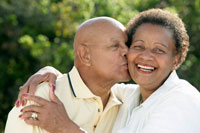
Leslie says that more communication is key. She says, “After a diagnosis you’ll be surprised by the fact that some of your best friends may move into shadows, yet others may come out of woodwork to support you.” But, she says the best thing people can do for cancer patients is to allow them to speak to you honestly. “Let them speak about their fears, and then put those aside and make room for hope,” she says. “Make room to talk or not talk about it- open up to listen to them.”
A sense of humor is important because “You’ll hear some pretty stupid things.“ It’s also important to know that some cancer patients might not want to talk about it all of the time.
“Individuals like Leslie are invaluable,” Dr. Pettiford says. He suggests to his patients that they speak with someone who can relate to their journey, such as a patient advocate. Because, he can’t relate to their experience on an emotional level as he has never had cancer.




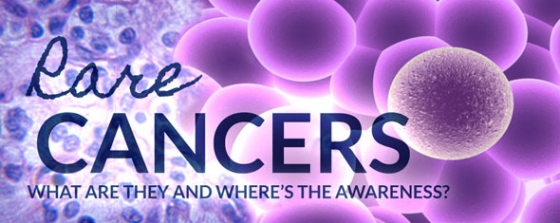




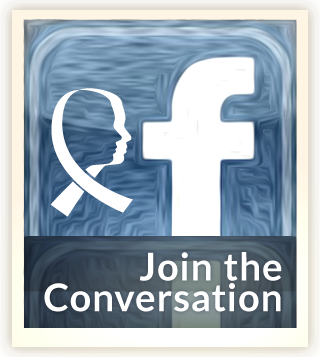




comments
Our hearts go out to you during this dark time. So very sorry to hear about the loss of your daughter and that you did not have the support you needed. Walking in her honor and to raise awareness is a powerful thing and will help others know that they're not alone. Please let us know if we can help promote your walk when the time comes. You'll find the email address for Facing Cancer Together in the Contact Us section of this website
With heartfelt sympathy, Katie with the Facing Cancer Together Team.
she went to the doctors...in June...and after several tests were done..finally in July..then a biopsy..her cancer had already spread into her liver..stage IV. We got on the computer to look up imformation. She had no lump to search for as in breast cancer, no sign until it was too late. There is not enough imformation out there for the public for pancreatic cancer. The American Cancer Society could only supply me with information about breast and lung cancer when I went to their West Shore Office. Kim, my daughter, age 39, won her battle against this terrible cancer on March 12th, and now is at peace, only 8 months after her diagnoses. I hope to form a walk next year in her memory so the public will be more aware of this cancer..the color purple is not displayed as much as the pink..breast cancer. Every type of cancer should be reconized more. Thanks Beverly Eyster
RSS feed for comments to this post